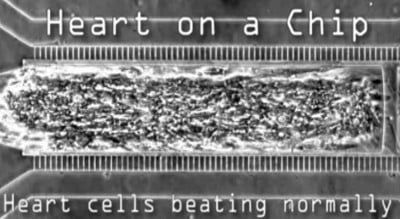 Heart disease is the leading cause of death among Americans and animals are often used in place of humans for testing new drugs.
Heart disease is the leading cause of death among Americans and animals are often used in place of humans for testing new drugs.
Bioengineers at UC Berkeley recently announced the development of a device that could make animal drug testing obsolete.
The “heart-on-a-chip” device uses stem cell technology to create human heart tissue using 3D printers. The heart tissue is then implanted into an inch long silicone device which acts as a perfect replica for the human heart, making animal testing for drugs a thing of the past.
“Ultimately, these chips could replace the use of animals to screen drugs for safety and efficacy,” lead Berkeley researcher Kevin Healy said.
“Many cardiovascular drugs target those channels, so these differences often result in inefficient and costly experiments that do not provide accurate answers about the toxicity of a drug in humans. It takes about $5 billion on average to develop a drug, and 60 percent of that figure comes from upfront costs in the research and development phase. Using a well-designed model of a human organ could significantly cut the cost and time of bringing a new drug to market,” Healy said.
The study “Human iPSC-based Cardiac Microphysiological System For Drug Screening Applications” was published in the journal Scientific Reports.
John Vibes writes for True Activist and is an author, researcher and investigative journalist who takes a special interest in the counter culture and the drug war.


